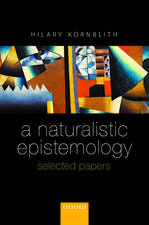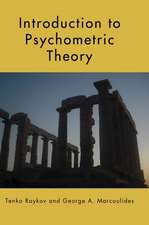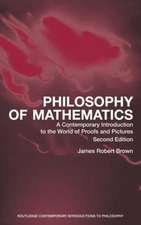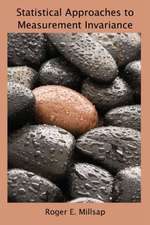The Laboratory of the Mind: Thought Experiments in the Natural Sciences
Autor James Robert Brownen Limba Engleză Hardback – 28 iul 2010
In this revised and updated new edition of his classic text The Laboratory of the Mind, James Robert Brown continues to defend apriorism in the physical world. This edition features two new chapters, one on “counter thought experiments” and another on the development of inertial motion. With plenty of illustrations and updated coverage of the debate between Platonic rationalism and classic empiricism, this is a lively and engaging contribution to the field of philosophy of science.
| Toate formatele și edițiile | Preț | Express |
|---|---|---|
| Paperback (2) | 349.71 lei 6-8 săpt. | |
| Taylor & Francis – 27 iul 2010 | 349.71 lei 6-8 săpt. | |
| Taylor & Francis – 29 apr 1993 | 361.08 lei 6-8 săpt. | |
| Hardback (1) | 1108.24 lei 6-8 săpt. | |
| Taylor & Francis – 28 iul 2010 | 1108.24 lei 6-8 săpt. |
Preț: 1108.24 lei
Preț vechi: 1351.52 lei
-18% Nou
Puncte Express: 1662
Preț estimativ în valută:
212.06€ • 222.00$ • 175.47£
212.06€ • 222.00$ • 175.47£
Carte tipărită la comandă
Livrare economică 05-19 aprilie
Preluare comenzi: 021 569.72.76
Specificații
ISBN-13: 9780415996525
ISBN-10: 041599652X
Pagini: 236
Dimensiuni: 138 x 216 x 14 mm
Greutate: 0.43 kg
Ediția:Nouă
Editura: Taylor & Francis
Colecția Routledge
Locul publicării:Oxford, United Kingdom
ISBN-10: 041599652X
Pagini: 236
Dimensiuni: 138 x 216 x 14 mm
Greutate: 0.43 kg
Ediția:Nouă
Editura: Taylor & Francis
Colecția Routledge
Locul publicării:Oxford, United Kingdom
Public țintă
UndergraduateNotă biografică
James Robert Brown is Professor of Philosophy at the University of Toronto.
Recenzii
"If thought experiments have extraordinary powers, then they need an extraordinary epistemology. This book is the only serious attempt to provide it."–John Norton, University of Pittsburgh
Praise for the first edition:
"Cogent, lively, enthusiastic ... A wonderfully stimultating book, highly rcommended"
–CHOICE
"I recommend this book to anybody interested in the philosophy of science...a fascinating compendium of these testaments to scientific genius."–David Papineau, Times Higher Education Supplement
Praise for the first edition:
"Cogent, lively, enthusiastic ... A wonderfully stimultating book, highly rcommended"
–CHOICE
"I recommend this book to anybody interested in the philosophy of science...a fascinating compendium of these testaments to scientific genius."–David Papineau, Times Higher Education Supplement
Cuprins
Chapter 1 Illustrations from the laboratory of the mind; Chapter 2 The structure of thought experiments; Chapter 3 Counter thought experiments; Chapter 4 Mathematical thinking; Chapter 5 Seeing the laws of nature; Chapter 6 ::; Chapter 7 Einstein’s brand of verificationism; Chapter 8 Quantum mechanics;
Descriere
Newton's bucket, Einstein's elevator, Schrödinger's cat – these are some of the best-known examples of thought experiments in the natural sciences. But what function do these experiments perform? Are they really experiments at all? Can they help us gain a greater understanding of the natural world? How is it possible that we can learn new things just by thinking?
In this revised and updated new edition of his classic text The Laboratory of the Mind, James Robert Brown continues to defend apriorism in the physical world. This edition features two new chapters, one on “counter thought experiments” and another on the development of inertial motion. With plenty of illustrations and updated coverage of the debate between Platonic rationalism and classic empiricism, this is a lively and engaging contribution to the field of philosophy of science.
In this revised and updated new edition of his classic text The Laboratory of the Mind, James Robert Brown continues to defend apriorism in the physical world. This edition features two new chapters, one on “counter thought experiments” and another on the development of inertial motion. With plenty of illustrations and updated coverage of the debate between Platonic rationalism and classic empiricism, this is a lively and engaging contribution to the field of philosophy of science.






















